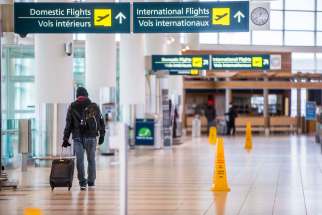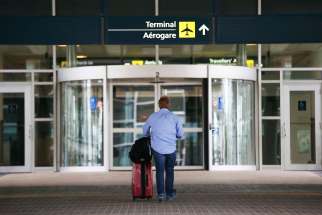Failure to crack down on travel before now another pandemic mistake
Read this article for free:
or
Already have an account? Log in here »
To continue reading, please subscribe:
Monthly Digital Subscription
$0 for the first 4 weeks*
- Enjoy unlimited reading on winnipegfreepress.com
- Read the E-Edition, our digital replica newspaper
- Access News Break, our award-winning app
- Play interactive puzzles
*No charge for 4 weeks then price increases to the regular rate of $19.00 plus GST every four weeks. Offer available to new and qualified returning subscribers only. Cancel any time.
Monthly Digital Subscription
$4.75/week*
- Enjoy unlimited reading on winnipegfreepress.com
- Read the E-Edition, our digital replica newspaper
- Access News Break, our award-winning app
- Play interactive puzzles
*Billed as $19 plus GST every four weeks. Cancel any time.
To continue reading, please subscribe:
Add Free Press access to your Brandon Sun subscription for only an additional
$1 for the first 4 weeks*
*Your next subscription payment will increase by $1.00 and you will be charged $16.99 plus GST for four weeks. After four weeks, your payment will increase to $23.99 plus GST every four weeks.
Read unlimited articles for free today:
or
Already have an account? Log in here »
Hey there, time traveller!
This article was published 29/01/2021 (1775 days ago), so information in it may no longer be current.
It’s tough to have sympathy for international travellers who have been caught in the crosshairs of Ottawa’s latest travel restrictions.
Since the pandemic took hold in this country just under a year ago, there have been far too few restrictions on travellers. Our ability to travel both internationally and domestically has been curtailed, but other than a couple of instances (a short-lived, recent ban on flights to and from U.K., for example) we’ve pretty much allowed people to travel anywhere, any time, with little oversight.
That largely came to an end on Friday, when new testing and quarantine requirements were introduced for anyone returning to Canada from an international destination.
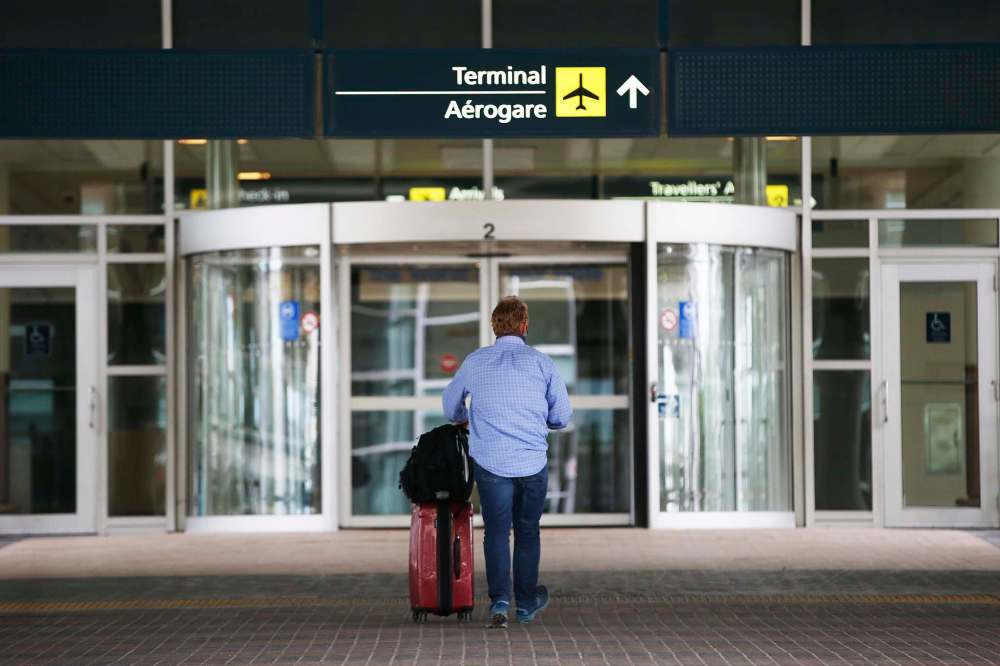
The measures are severe, extensive and way overdue. As was the case with Manitoba’s recent decision to mercifully put a 14-day quarantine requirement on travellers who come here from Western Canada, Prime Minister Justin Trudeau’s new international travel restrictions come weeks, if not months, later than they should have.
Starting now, flights to and from Mexico and other Caribbean countries have been halted. The affected airlines will work with stranded customers to find other flights home to Canada. However, getting on any plane bound for Canada has also become more burdensome.
To get on a flight to Canada from an international destination, travellers need to provide proof of a negative, pre-departure test taken within three days of the date of travel. WIth the new restrictions, upon arrival in Canada at one of four designated airports (Toronto, Montreal, Calgary Vancouver), travellers will have to get a second test. While waiting for those results, they must quarantine in a hotel at their own expense for as many as three days.
Trudeau said the cost of the quarantine layover could be as much as $2,000 per traveller.

A second negative test result allows those passengers to board flights to get to other destinations within Canada. Right now, Manitoba will not require those travellers to have another COVID-19 test unless they are symptomatic. However, they will still have to complete the 14-day quarantine period.
Why weren’t these measures introduced sooner?
Some of the reticence around enhanced travel restrictions may have originated with a rash of recent epidemiological studies on the effect of travellers on overall COVID-19 transmission.
In short, a handful of thorough and credible studies has shown that while international travellers were responsible for “importing” a high number of cases in the early days of the pandemic, as the virus took hold, travel in general played a much smaller role in overall COVID-19 case numbers.
On Jan. 1, The Lancet published a study that looked at imported COVID-19 cases in 132 countries as a percentage of total infections, in May and again in September. It found that travellers were responsible for a much higher percentage of cases in May; after COVID-19 had arrived, however, the incidence was much lower as community transmission easily overtook travel as the major cause of the growth of the pandemic.
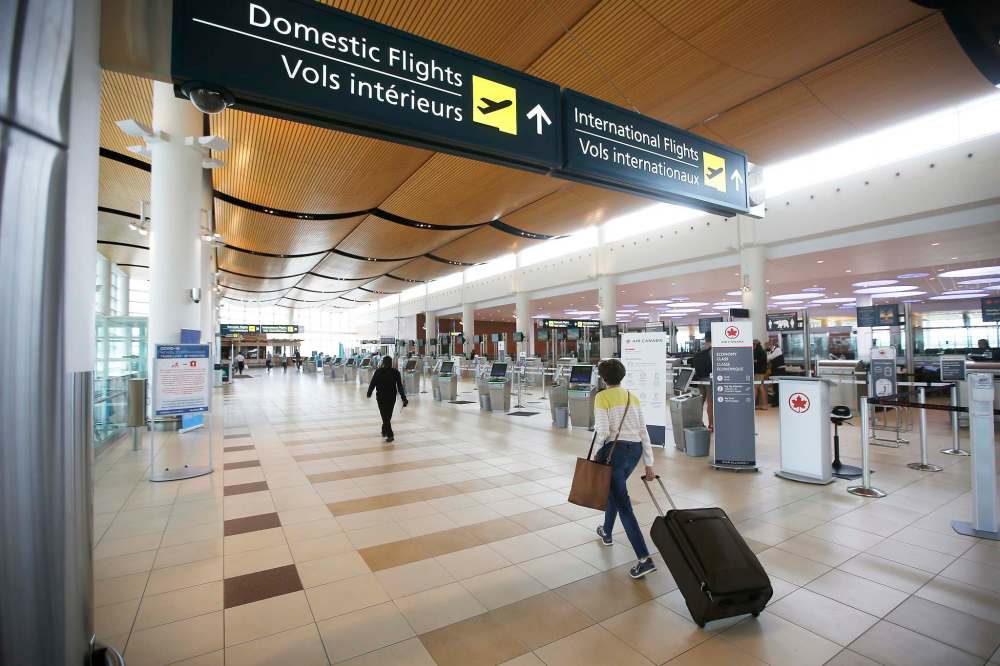
The authors concluded that “stringent travel restrictions might have little impact on epidemic dynamics” unless a country has a very low number of cases and a high number of international travellers arriving.
Of course, the variant strains of COVID-19 have changed the pandemic game, returning us to a scenario that, in epidemiological terms, looks more like the initial outbreak last winter. Not surprisingly, the world has developed a renewed interest in controlling the importation of these variants.
Although the studies are important, they do not make the argument that travel restrictions were not needed sooner. In fact, given the fact that the arrival of variant strains was thought to be a virtual certainty by epidemiologists, it would have made a lot of sense to make a more genuine effort to control non-essential travel well before now.
Although public health officials in Ottawa, and here in Manitoba, have strongly and consistently recommended that we do not travel for non-essential reasons, those officials were fully aware, even as they uttered those admonitions, that people were ignoring the advice and flying south for winter vacations, or east and west to visit family.
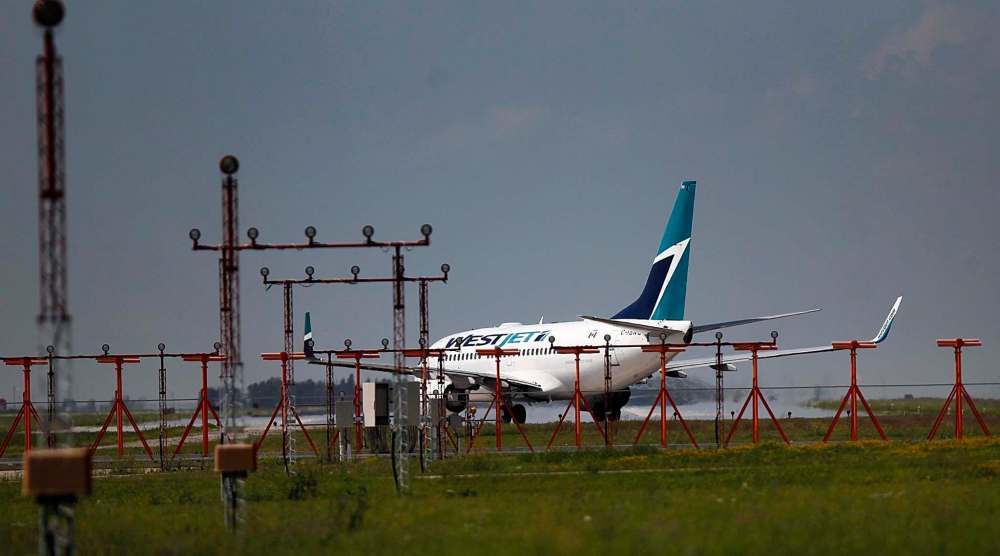
Ottawa publishes guidelines on “essential” and “non-essential” travel that are so vague, almost anyone can justify a trip anywhere for any reason. In fact, other than a trip to another city in Canada for a life-saving medical procedure that is not offered here, you could argue there is no such thing as essential travel during a pandemic.
Clearly, those guidelines had absolutely no impact on the amount of travel, as evidenced by the myriad politicians and other public officials who have been caught travelling to sunny destinations over the Christmas holidays. Those people are not stupid, per se; they took advantage of the opportunity to indulge in non-essential travel because no one was stopping them.
Measures to control travel in general, and non-essential travel in particular, are destined to join a long and growing list of things we really should have done sooner to control the spread of COVID-19, along with mandatory mask use and short, sharp interruptions in economic activity.
The good news, if you can call it that, is that the COVID-19 variants will no doubt create additional threats in the years to come. If nothing else, that is an opportunity to get it right. Next time.
dan.lett@freepress.mb.ca

Born and raised in and around Toronto, Dan Lett came to Winnipeg in 1986, less than a year out of journalism school with a lifelong dream to be a newspaper reporter.
Our newsroom depends on a growing audience of readers to power our journalism. If you are not a paid reader, please consider becoming a subscriber.
Our newsroom depends on its audience of readers to power our journalism. Thank you for your support.

